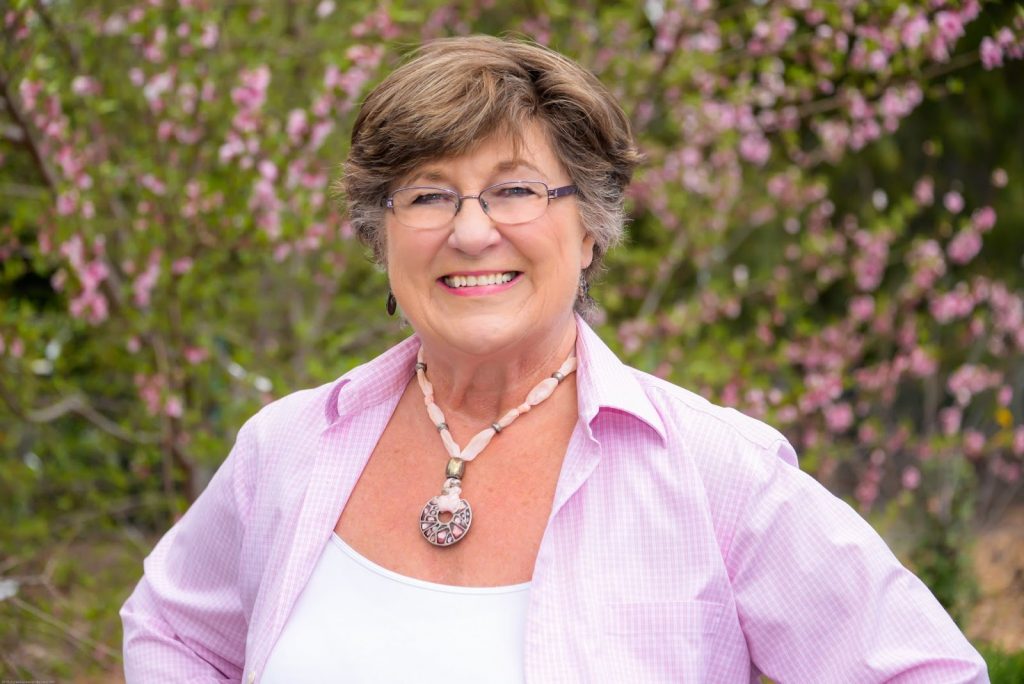Guest post written by Nancy Landrum, Author, Relationship Coach and Founder of www.RelationshipRehabCoach.com
There seems to be a universal image of what an American family should look like. Think “Leave it to Beaver,” or Norman Rockwell’s paintings, or a mom and dad who have always and forever only been married to each other and all of their children were conceived by them. Those images describe what is known as a nuclear family.
Stepfamilies are different. A stepfamily is formed when one or both partners have a child from a previous relationship. The relationships are far more complex than in a nuclear family. The finances are usually tighter with alimony and legal payments and the loss of assets due to a divorce. The relationship with one or more Exes are often acrimonious and emotionally draining. The living arrangements for the children are often upsetting. Relationships with step-children and attempts to equally parent all children often expose differences in parenting styles and arguing about child discipline. And more…
Extensive research into stepfamily dynamics documents up to ten sources of stress on a stepfamily. By contrast a nuclear family suffers with a possible four stressors. The effect of the multiple sources of stress invariably overwhelms both the adults and the children in a stepfamily. If the couple is trying to force their stepfamily into the nuclear family mold, the family suffers even more.

To succeed at any marriage, nuclear families and stepfamilies need to learn four basic skills that build fulfilling relationships.
The first power skill of communication is “Speaking without attacking”: Speaking in such a way that the listener is able to hear without defensiveness. Rather than, “You hurt me!” say, “When you do/say___, I feel hurt.” Rather than bringing up a laundry list of complaints, ask to speak about one issue at a time. Rather than saying, “You never have my back! You embarrassed me at the party!” when alone say, “I want to pull away from you when you joke in public about a private issue between us.”
The second skill is “Listening with Empathy”: or, Listening for the purpose of understanding the other’s point of view. For many of us listening means only hearing the meaning of the words. While the other is speaking, I may be planning my rebuttal,or deciding what to criticize about what is being said. Instead, summarizing and repeating back what you understand your partner has said, will give reassurance that you listened and care about the issue from his/her point of view. When arguments escalate, it’s because both are speaking, but no one is deeply listening!

The third skill is “Managing Conflict”: Anger sometimes happens in any close relationship, so having good anger management strategies is important. Anger should always be vented away from anyone it can hurt, not used to attack someone you love. Combine that with effective problem solving…meaning finding solutions that meet both partners’ needs. Solutions that favor one person’s needs over the other’s are doomed to fail. It’s how couples manage conflict that determines the success or failure of the relationship over time.
The fourth power skill of communication is to have “Realistic Expectations”: For example, the belief that loving each other will solve every problem is a bit of a fantasy doomed for a painful reality check in both a first or a subsequent marriage. Effective communication and conflict management skills are to be learned and practiced in order to fulfill the expectation of a lasting, loving marriage!
A step-couple needs those four skills plus more to successfully create a strong, loving and lasting marriage from which to raise well-adjusted, happy children, but first a story about our stepfamily…
My late husband Jim and I thought we were mature. We could handle anything. But we were blind-sided by the unique challenges of stepfamily living. We both turned into throwing tantrums like two-year-olds when we couldn’t agree on parenting solutions. We fought over the same issue for years, until in desperation, we found a coach who wisely navigated us through our temper tantrums and disagreements by teaching us, first of all, how to discuss the issue with respect and how to safely vent our anger away from each other. By the time that happened our children had taken sides…his with him and mine with me. It took six months of hard work to heal the marriage and several more months of keeping our agreements with each other before we knew we were well and truly out of the woods. It took a few more years for the rifts with the children to heal.

Jim and I were teaching these transformational skills to other couples when we wrote How to Stay Married & Love It: Solving the Puzzle of a SoulMate Marriage. We felt like we had finally cracked the code for all relationships, particularly for stepfamilies. We wanted to share how we recovered our love through the first four skills. We wanted to prevent couples from going through the agony we experienced! In addition to the first four skills for nuclear families, stepfamilies can avoid the pitfalls by practicing at least two more foundational skills.
Skill number five, the first and most important for stepfamilies, is to let go of the unrealistic expectation that this family will be like a nuclear family. This founding principle is emphasized In Stepping TwoGether: Building a Strong Stepfamily. The Norman Rockwell scenes are rarely realistic for a nuclear family, but absolutely impossible for a stepfamily. There are obstacles to negotiate that don’t exist in a nuclear family, such as where each of the children go for a holiday, or which parent or grandparent will get that child on the actual day cited on the calendar. Then, which relative will have to take second best and get that child the evening before or after. How will you feel about spending every holiday rushing from home to home trying to please everyone without enjoying any couple or family time? Together, find amenable solutions to holiday dilemmas.
Together, decide on the house rules when one of you tends to be more strict than the other. Face it, most biological parents view their own child through rose colored glasses. A birth parent is more apt to forgive offenses or relax the rules. Without a close emotional connection with a step-child, a step-parents will often see annoying areas where that child needs improvement.

Together, decide how to negotiate when the grandparents want to take their “real” grandkids to Disneyland, or out for ice cream, and have no regard or thoughtfulness with the step-grandchildren left behind.
Finances are also more complicated for stepfamilies. One or both partners may be paying the equivalent of a monthly mortgage in alimony. I had a client who was furious and resentful that her husband paid $5,000 a month to his Ex when they both suspected that she has a job that the court doesn’t know about and doesn’t need that much alimony. Your retirement plans will have to be adjusted.. What about the education of the children? Will he always have to give a huge chunk of (what should be your joint) income to pay alimony, support and costs of higher education? What in the world happened to fair?
These and multiple other issues require concerted effort, together and in agreement, to navigate all of the built in pit-falls unique to stepfamily dynamics. While the opportunity for a nuclear, or first family is gone, letting go of the unrealistic expectation that your stepfamily will look, act and feel like a nuclear family opens the door for realistic solutions to build a loving stepfamily.
Therefore, stepfamily skill number six is “Willingness” to be educated about stepfamily dynamics and willingness to implement research proven strategies that help stepfamilies succeed.
Is it possible to build and sustain a successful marriage with all this added stress? Yes! Since many of us were not reared in families where we saw great communication skills modeled, we need to be willing to learn new skills. Is it possible to learn how to maintain respect for each other even when your hot buttons are pushed to the max? Yes! Is it possible to build and sustain a functional, healthy stepfamily? Yes!
While learning new communication and conflict management skills was hard, Jim would emphatically tell our classes, “It was worth it to have the happy, loving marriage we both wanted.” Adapting our parenting strategies to that recommended by stepfamily research was painful, but it removed a major source of conflict between us. Couples who are willing to learn the skills and adopt recommended strategies have a far greater chance of enjoying the lasting, loving marriage they hoped they were getting when they said, “I do.” Their children are far more apt to mature into well adjusted adults who can create and sustain healthy relationships for themselves.

Although our children were hurt during the years we were in conflict…deeply hurt…each of them at different times has expressed gratitude to either Jim or I for modeling our commitment to a loving marriage by learning and using better skills. Each of them has done their own inner work to forgive us and move on from those dark years. My elder son thanked Jim for being “the best step-father I could ever imagine.” My younger son and Jim developed a very special relationship with a lot of respect and affection being given both ways. My two step-daughters have become two of my closest friends. Jim’s son ends every phone call or visit with a sweet, “I love you.”
There is a wealth of resources for nuclear and stepfamily couples. Take a class, join a support group, see a coach or therapist that understands how to teach these skills. Interview a person before deciding if this is the best person for you to learn from. Find out what they know about stepfamilies, why they know and what they will teach.
Without respect, love erodes and will eventually die. Respect is the medium in which love grows. Knowing how to give and receive respect even while navigating the unique challenges in a stepfamily will ensure this love will last for a lifetime.
- Chickpeas vs. Garbanzo Beans: What’s the Difference? - April 19, 2024
- How to Manage or Improve Anxiety - September 21, 2023
- The birth of a company - July 29, 2023






